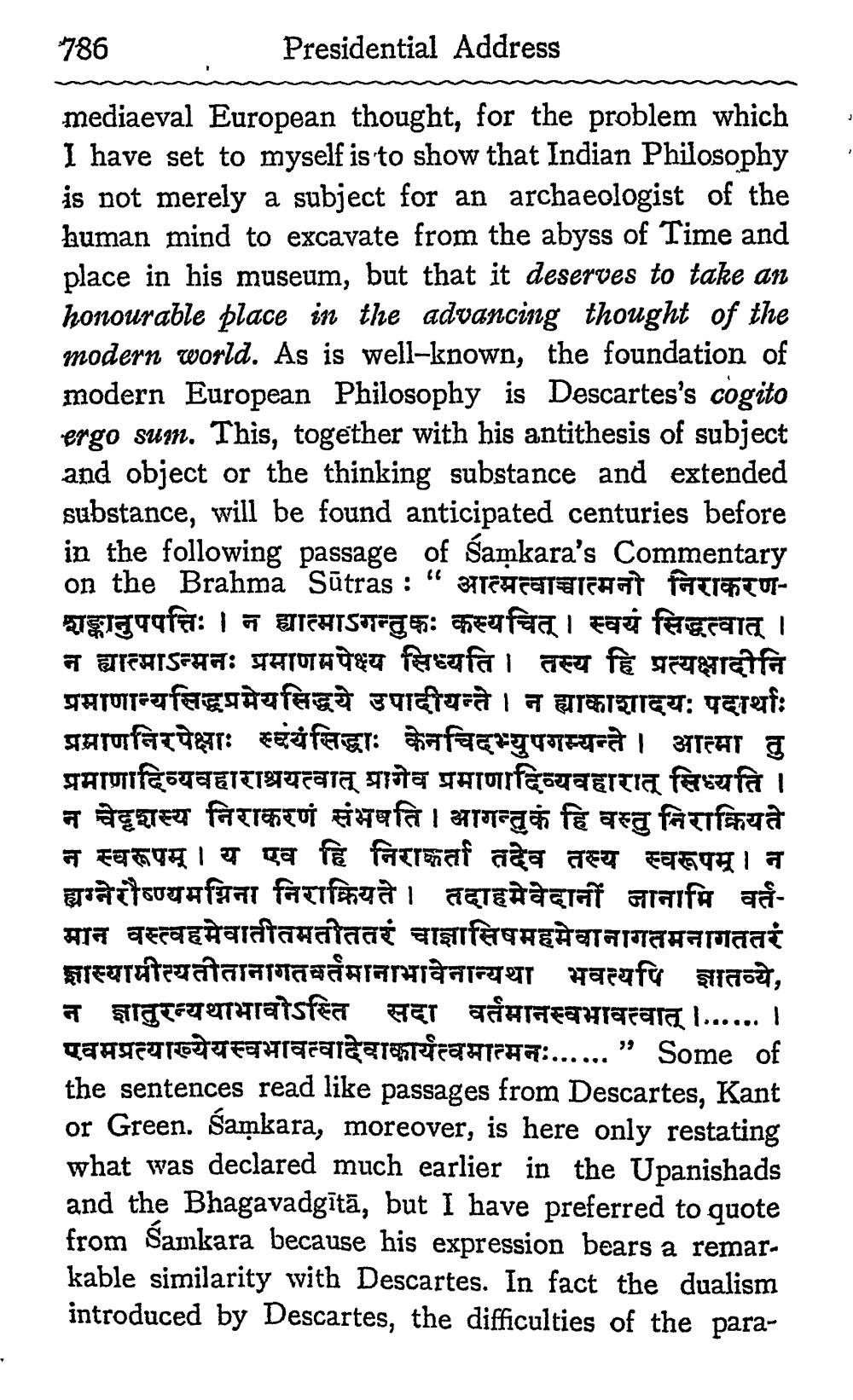________________
Presidential Address
८८
mediaeval European thought, for the problem which I have set to myself is to show that Indian Philosophy is not merely a subject for an archaeologist of the human mind to excavate from the abyss of Time and place in his museum, but that it deserves to take an honourable place in the advancing thought of the modern world. As is well-known, the foundation of modern European Philosophy is Descartes's cogito ergo sum. This, together with his antithesis of subject and object or the thinking substance and extended substance, will be found anticipated centuries before in the following passage of Samkara's Commentary on the Brahma Sūtras: आत्मत्वाञ्चात्मनो निराकरणशङ्कानुपपत्तिः । न ह्यात्माऽगन्तुकः कस्यचित् । स्वयं सिद्धत्वात् । न ह्यात्माऽन्मनः प्रमाणमपेक्ष्य सिध्यति । तस्य हि प्रत्यक्षादीनि प्रमाणान्य सिद्धप्रमेयसिद्धये उपादीयन्ते । न ह्याकाशादयः पदार्थाः प्रमाणनिरपेक्षाः स्वयंसिद्धाः केनचिदभ्युपगम्यन्ते । आत्मा तु प्रमाणादिव्यवहाराश्रयत्वात् प्रागेव प्रमाणादिव्यवहारात् सिध्यति । न चेदृशस्य निराकरणं संभवति । आगन्तुकं हि वस्तु निराक्रियते न स्वरूपम् | य एव हि निराकर्ता तदेव तस्य स्वरूपम् । न ाग्नेरौष्ण्यमग्झिना निराक्रियते । तदाहमेवेदानीं जानामि वर्तमान वस्त्वहमेवातीतमतीततरं चाज्ञासिष महमेवानागतमनागततरं ज्ञास्यामीत्यतीतानागतवर्तमानाभावेनान्यथा भवत्यपि ज्ञातव्ये, न ज्ञातुरन्यथाभावोऽस्ति सदा वर्तमानस्वभावत्वात् ।......। एवमप्रत्याख्येयस्वभावत्वादेवाकार्यत्वमात्मनः " Some of the sentences read like passages from Descartes, Kant or Green. Samkara, moreover, is here only restating what was declared much earlier in the Upanishads and the Bhagavadgītā, but I have preferred to quote from Samkara because his expression bears a remarkable similarity with Descartes. In fact the dualism introduced by Descartes, the difficulties of the para
$786




